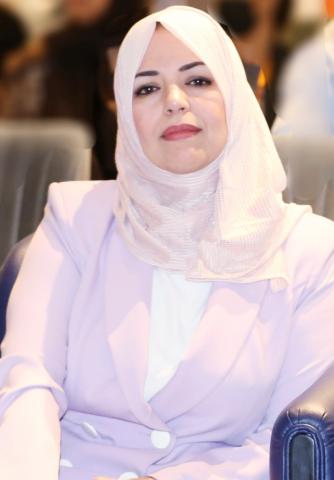Interview with longlisted author Aisha Ibrahim
15/02/2023

When did you begin writing The Box of Sand and where did the inspiration for it come from?
I began the novel in April 2020. As for the inspiration, I used to wonder how the aggressor feels during war? How do people empty him of his humanity and push him to kill another human being? Surely that must mean that he goes through a process of intense mental brainwashing. I happened to be listening to an Italian song whose title piqued my interest: “Tripoli, beautiful land of love” (Tripoli bel suol d'amore). It was sung by an Italian female singer called Gea Della Garisenda in 1911 and it was the title of a 1954 film. It grabbed my attention, and I looked into the background of the song in Italian sources. These gave me an impression of the general atmosphere in Italy, the political aspirations and struggles, and the mobilization campaign for the invasion, as well as the influence of propaganda and media campaigns in mobilising soldiers and public opinion. All I knew before about the colonial campaign against Libya was what history books had presented, focusing on the Libyan resistance. In popular culture, we have inherited thousands of stories about that period, but we don’t know anything about the other side. Why and how did the media, politics and military brainwashing occur? As I continued my research, I discovered other dark aspects of the colonial era, about Libyan women who were transported to penal colonies. The Italian press discussed it in many sources and articles. When I went back to the Libyan sources, at least the available documents in the Centre of Libyan Resistance, I was amazed by how that ugly page had been turned over. Over two hundred Libyan women had disappeared on cold, deserted islands, in a crime against humanity. They had done nothing wrong, and were not charged with anything, nor did they receive a fair trial. Perhaps it is not possible to hand over the perpetrators to justice, but the novel is another kind of trial, held afresh by readers of the book, like a curse pursuing the killer with each new reading.
Did the novel take long to write, and where were you when you finished it?
It took eight months to write, with about four months of revisions. In fact, my family and I were displaced from our home by the war in Tripoli, Libya, which continued from the middle of 2019 until nearly the end of 2020. At that time, we left our house, situated in the area where the fighting took place, and I began writing the novel in an old country house in a remote village west of Tripoli. We lived there, in a wretched state of mind. Writing was the one ray of light illuminating that dark time.
Do you have writing rituals?
I have to admit that my circumstances are not ideal for writing. My job demands commitment to eight hours a day of work. I also work as a news editor, which consumes a lot of mental energy. As for more general concerns, I live in an unstable area. I have experienced war and displacement with all its bitterness and anguish. So, I cannot claim to have a luxurious lifestyle and that I am one of those people who have writing rituals, who sit on their balcony at 7am, sip their coffee and write, feeling serene. I am also not one of those who have time to stay up late at night contemplating or anticipating inspiration from the muse of the night, its stars and silence. Most of my time is spent running between job and family responsibilities. But when the moment of writing arrives, it never asks anyone for permission. It comes as a state of peculiar longing for something unknown, for distant worlds which seem as though they are a life I have lived before, with another spirit, and which have come to describe themselves in every detail. I know exactly the moment when I need to surrender to the act of writing. It’s the moment when anxiety is growing rapidly and reaching its maximum point, and new ideas are pressing with strange force upon me, while characters are peeping out from behind curtains and walls. At that point, I must find a corner to struggle with these enigmatic forces. I don’t write just to achieve something, but to be released from that anxiety and gain control of this tempestuous subject matter.
What is your next literary project after this novel?
There are various ideas, but they haven’t matured enough yet. I also believe in the idea that my best works are those I haven’t written yet. Therefore, my new novel has to be an advance in my literary career. It must be different and distinctive compared with my previous writing.
